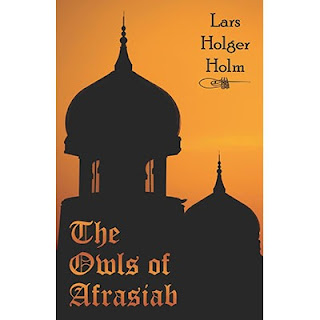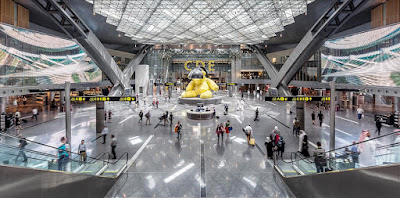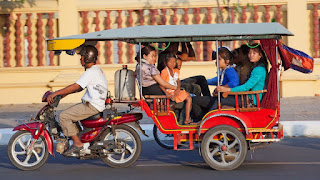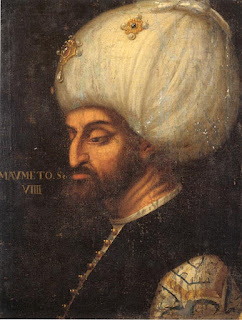
Mehmet II. Painting by Paolo Veronese
The battle between Islam and Christianity precipitating the fall of
Constantinople was an event that for ever changed the course of history.
Breathtakingly rendering the internal struggle of the Byzantine capital
under deadly constriction, and the occult high-stake political game
surrounding it, The Owls of Afrasiab also tells the story of the
dangerous passion uniting the Genoese commander leading the city's
defence with Hadije, one of the wives of the late Sultan Murad,
determined to avenge herself for the murder of her baby boy ordered by
the young and lethally ambitious Sultan Mehmet II.
"One man who had made it his special duty to regularly attend the
funeral masses was the learned monk Gennadi, a man renowned for
the purity and zeal of his conviction. A sworn enemy to the union
of the churches, he nonetheless rendered the Emperor, and thereby
the city, a service of sorts by constantly setting the example of a Godloving
man possessed by unwavering faith. To Gennadi miracles were
not only possible but positively attainable, but only under the condition
that all precepts of orthodoxy were strictly observed. He was
practically indefatigable in carrying out prostrations. Somewhat more
alarmingly, Gennadi had also let himself be convinced that the greatest
of all possible miracles to visit mankind would be God’s imminent
decision to bring about its demise. In short, he did not hesitate to propound
the message that the Sultan’s siege was a tell-tale sign that the
Apocalypse of John was about to become reality, and that the reason
for this to happen was that God, precisely in the year 1453 AD, had
grown tired of the wicked race he had once sired.
Constantine had been alerted to the potentially devastating effects
of this fatalistic message – one dangerous implication of which was the
idea that Mehmet had been chosen by providence to carry out God’s
last will –months before Mehmet had actually turned up outside
the walls. In truth, Gennadi’s declaration that the defection of the
Orthodox Christians from the one and only true faith, as well as their
willingness to allow Catholic ritual to desecrate the holiest of churches,
Hagia Sophia, had unleashed riots in the streets threatening Italians
in general, and their spiritual leaders, such as the Pope’s special envoy
Isidore of Kiev and his right hand, Bishop Leonard of Chios, in particular.
Understandably, the Emperor, fearing far reaching complications,
was hesitant to impose penalties on the ring leaders, although
his Roman guests, who had in fact brought indispensable bowmen
and supplies to the city, demanded that they be forcefully suppressed.
Attendance in unionist church services was consequently symbolic at
best.
As the siege wore on, however, Gennadi, considered by the faithful
as the rightful successor to Patriarch Gregory – who had left
Constantinople for Rome two years earlier exasperated at the suicidal
stubbornness of its population – had broken his voluntary isolation.
He could now be seen actively participating both in the city’s defence
and in the services held under oil lamps as numerous and glimmering
as the stars of heaven. Whether he had changed his mind about the
inevitability of the city’s fall was not to be deduced from his public
appearances, but it did give Leonard and Isidore an opportunity to try
to converse with him. Consequently, and much to the astonishment
of pious Greeks from all walks of life, Leonard and Isidore were on
several occasions seen participating in the Orthodox masses for the
fallen, humbly adhering to ceremonial minutiae.
It was well into the night when the two of them discreetly caught up
with Gennadi making for his monastery in the presence of two monks.
The Greek sage at first refused to have anything to do with them, making
no secret of that he held them personally responsible for the corruption
of his people. It seemed as though that would conclude the
matter, since he refused to salute them, turned away and was about to
disappear into a dark alley when Isidore, a Greek by birth, suddenly
had a bright idea. He ran after him while exclaiming,
– Brother Gennadi! We’re aware that you loathe our presence and
thus shun our company, but let me tell you this: the church of Rome
does not wish to see its brothers in faith fall prey to the caprices of
Allah over a matter of preposition. Please, don’t let the matter of Jesus’
substances obscure the reality of the fact, that to the infidels Jesus is not
even the Son of God, but a prophet subordinated to the authority of
Mohammed, a common camel driver who eight centuries ago claimed
to have received visions from the archangel Gabriel instructing him to
disregard the Bible as the ultimate dispenser of truth. In view of the
resistance which the laetantur coeli has met with among your flock,
the Pope has declared himself willing to reconsider his stance on the
question of independence and will issue an invitation suggesting a
new council of the churches in view of obtaining, once and for all, a
convivial solution to problems raised by local variations in theological
interpretation.
It was diplomatic nonsense and the promise little more than a pious
lie as the Pope’s conviction in this regard was known to be more solid
than the rock of Gibraltar; but it was also, considering the precariousness
of the situation, a license taken with regard to the fact that if
Constantinople ever fell to the Turks, the Pope’s position on the matter
of union between the churches would matter very little anyway.
Surprisingly, Gennadi seemed willing to accept this pretext for a chat,
but it wasn’t until they had reached the monastery, and the three of
them were installed in the refectory for a bowl of soup – the monk’s
only meal for the day – that he told them his real reasons for allowing
this unprecedented meeting to take place."

Buy the book:
https://www.amazon.com/Owls-Afrasiab-Secret-Story-Constantinople-ebook/dp/B007YSZ1CS/ref=sr_1_4?ie=UTF8&qid=1467197723&sr=8-4&keywords=Lars+Holger+Holm#navbar
In the midst of the siege Hadije manages to get inside the city walls.
The subsequent encounter with Commander Longo results in love at first
sight and a conjuration of spirits dedicated to kill Mehmet before he
takes the city. The plan, of course, turns out to be impracticable. The
enemy is now not only outside the gates, but also actively conspiring
from within. It seems an honest man and warrior can do nothing but stand
by his word and sword until he falls. Meanwhile, a woman's got to do
what a woman's got to do... A dazzling drama enacted at a pivotal point
in European history, when the luminous ideas of the Renaissance begin to
gain ascendancy over medieval darkness. Churchmen still squabble over
the use of prepositions in dogma, humanists look for answers to new
questions in arcane sciences, while eager merchants of Italian republics
seek ways to hold on to their dominions, rapidly dwindling under the
mounting threat of an enemy growing more menacing by the minute: the
Ottoman, Islamic Turk.









